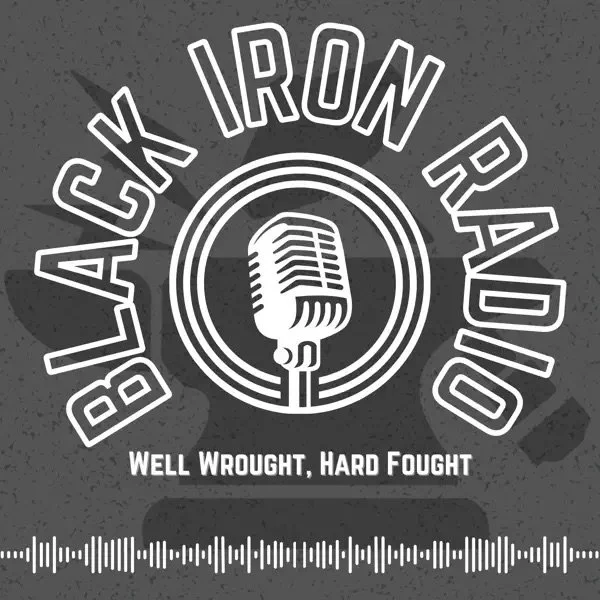Do You Really Need Supplements?
In this blog post, we’re breaking down key takeaways from our latest episode of Black Iron Radio, where Maggie is joined by registered dietitian Lauren Step and PhD candidate Chris to tackle a topic that’s often confusing (and sometimes overwhelming): supplements. From multivitamins and magnesium to creatine and greens powders, this conversation dives into when supplements are actually useful, when they’re not worth the hype, and how to avoid common pitfalls when navigating the supplement industry. Whether you’re an athlete, a health enthusiast, or just trying to cover your bases, this episode will help you make more informed—and safer—decisions when it comes to what you’re putting in your body.
BLACK IRON RADIO EP. 237: DO YOU REALLY NEED SUPPLEMENTS?
Your sociaL feeds are packed with products promising better health, more energy, and boosted performance—but do you actually need any of them? In this episode, Maggie sits down with Lauren (CNS and LDN), and Chris (PhD candidate and supplemenT company owner), to unpack the science, myths, and marketing behind supplementation. They cover when supplements are genuinely helpful (hello, pregnancy, athletics, and medical conditions), when they’re overkill, and how to avoid wasting money or even accidentally harming yourself. If you've ever wondered if that multivitamin is doing anything, this one's for you.
📲 Listen & Subscribe: Apple Podcasts | Spotify
Supplements are everywhere—from grocery aisles to Instagram stories—and it’s no surprise that many people wonder, “Do I actually need to be taking all this stuff?” On a recent episode of Black Iron Radio, Maggie sat down with Lauren Step, RD, and Chris, PhD candidate and supplement company owner, to unpack this hot topic.
First Off, What Are Supplements?
They’re not just pills. Supplements come in all forms: powders, gummies, bars, tinctures, tonics, and more. While a protein bar might blur the line between snack and supplement, the key difference is that supplements aim to deliver nutrients—vitamins, minerals, herbs—that you may not be getting through your diet.
And not all nutrients are absorbed equally. Food delivers nutrients with what’s called the food matrix—a complex combination of vitamins, minerals, enzymes, and other compounds that often help your body absorb nutrients more effectively than isolated pills can.
Why People Supplement (and When It Makes Sense)
For most people, a nutrient-dense diet can meet their needs. But there are situations where supplements have a role:
Athletes might use supplements like creatine, sodium bicarbonate, or caffeine to enhance performance.
Pregnant or postpartum individuals often benefit from prenatal vitamins and iron.
People with medical conditions (e.g. malabsorption, certain surgeries, or medications like SSRIs) may require targeted supplementation.
Vegans and vegetarians may need B12, iron, or omega-3s if they’re not getting enough from food.
In these cases, supplements can help fill genuine nutritional gaps—but they shouldn’t be a substitute for a solid diet.
The Trouble with DIY Supplementation
Tracking your intake in an app might show a low vitamin A or D day, but that doesn’t automatically mean you’re deficient. Deficiencies take time to develop and can vary in how they show up in your body and bloodwork. For example, it could take a year of tracking intake to spot a true vitamin A deficiency based on diet alone.
And bloodwork? Even that’s tricky. Vitamin levels can fluctuate and take months to reflect changes in intake.
Multivitamins: Helpful or Hype?
Most multivitamins are not personalized and often exceed 100% of daily values for many nutrients. That may sound like a bonus, but with fat-soluble vitamins like A, D, E, and K—or minerals like iron and calcium—more is definitely not better. These nutrients are processed by the liver, and too much can cause harm over time.
Risky Business: The Dark Side of Supplements
Unlike medications, supplements aren’t tightly regulated. Companies don’t need FDA approval to sell their products, and the burden of proving harm falls on the FDA after the fact.
A recent review found that 15–26% of sports supplements were contaminated with banned substances like steroids or stimulants. Even companies that claim “third-party tested” on their labels might be faking it. Reputable certifications include NSF Certified for Sport, Informed Choice, USP, and Labdoor.
Bottom line? If you’re an athlete subject to drug testing, be extra careful.
Watch Out for Red Flags
The supplement industry thrives on vague claims. Phrases like “supports healthy metabolism” or “aids in hormone balance” sound promising but are often legally vague to avoid FDA violations. More blatant claims—like “cures anxiety” or “eliminates belly fat”—are a legal no-no and a definite red flag.
Social media makes it even messier. Influencers might promote products with misleading language that skirts around regulation, making it hard to tell what’s fact and what’s hype.
So… Do You Need Supplements?
Probably not as many as you think. If you eat a varied, mostly whole-foods diet and don’t have any specific medical conditions or dietary restrictions, you’re likely covering your bases. But if you’re curious—or feeling off—it’s worth working with a dietitian or healthcare provider to get a clear picture before you start adding pills to your cart.
At Black Iron Nutrition, we support food-first approaches and educate our clients on how to make informed choices—whether that’s with food, supplements, or both.
🎙️ WANT MORE? SUBSCRIBE TO BLACK IRON RADIO!
If you enjoyed this conversation, check out more episodes of Black Iron Radio, where we cut through the noise and give you real, no-BS advice on feeling, performing, and looking your best. Each week we share practical nutrition, training, and wellness strategies and tips to help you succeed.
📲 Listen & Subscribe: Apple Podcasts | Spotify


